All products featured are independently chosen by us. However, SoundGuys may receive a commission on orders placed through its retail links. See our ethics statement.
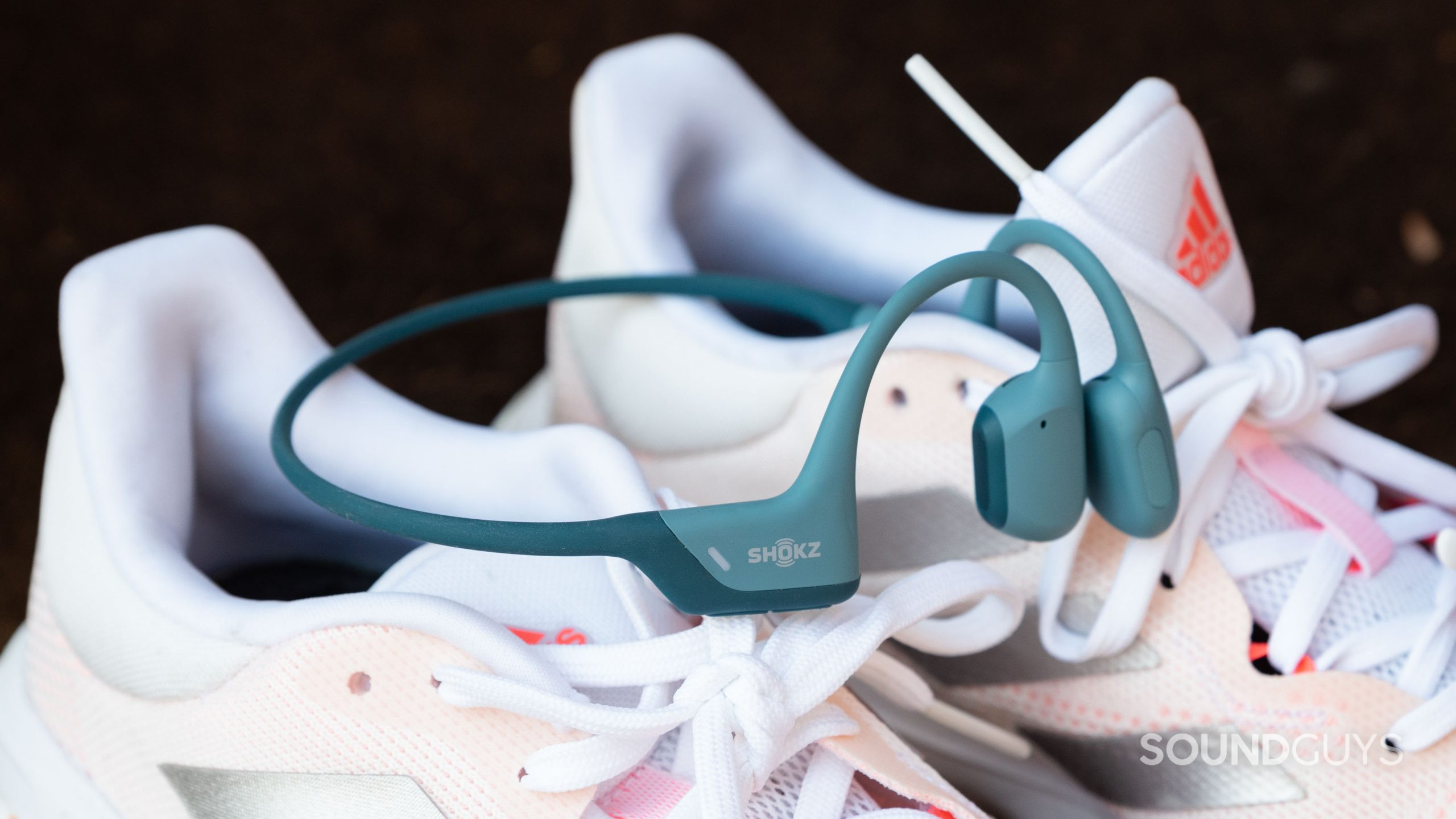
Shokz OpenRun Pro review
August 20, 2025
Shokz OpenRun Pro
Few feelings are better than running outside while plugged into your favorite workout beats, but blissful unawareness can get you into trouble. You could buy a pair of AirPods to keep you aware of your environment, but those don’t fit all ears well. Fortunately, Shokz has nearly perfected the formula for great bone conduction headphones, and the Shokz OpenRun Pro stays true. These headphones deliver a secure fit while keeping you aware of your surroundings.
The OpenRun Pro are more expensive than the company’s other workout headphones, but are they worth it?
Editor’s note: this article was updated on November 13, 2024, to include a comparison to the OpenRun Pro 2.
What you need to know about the Shokz OpenRun Pro
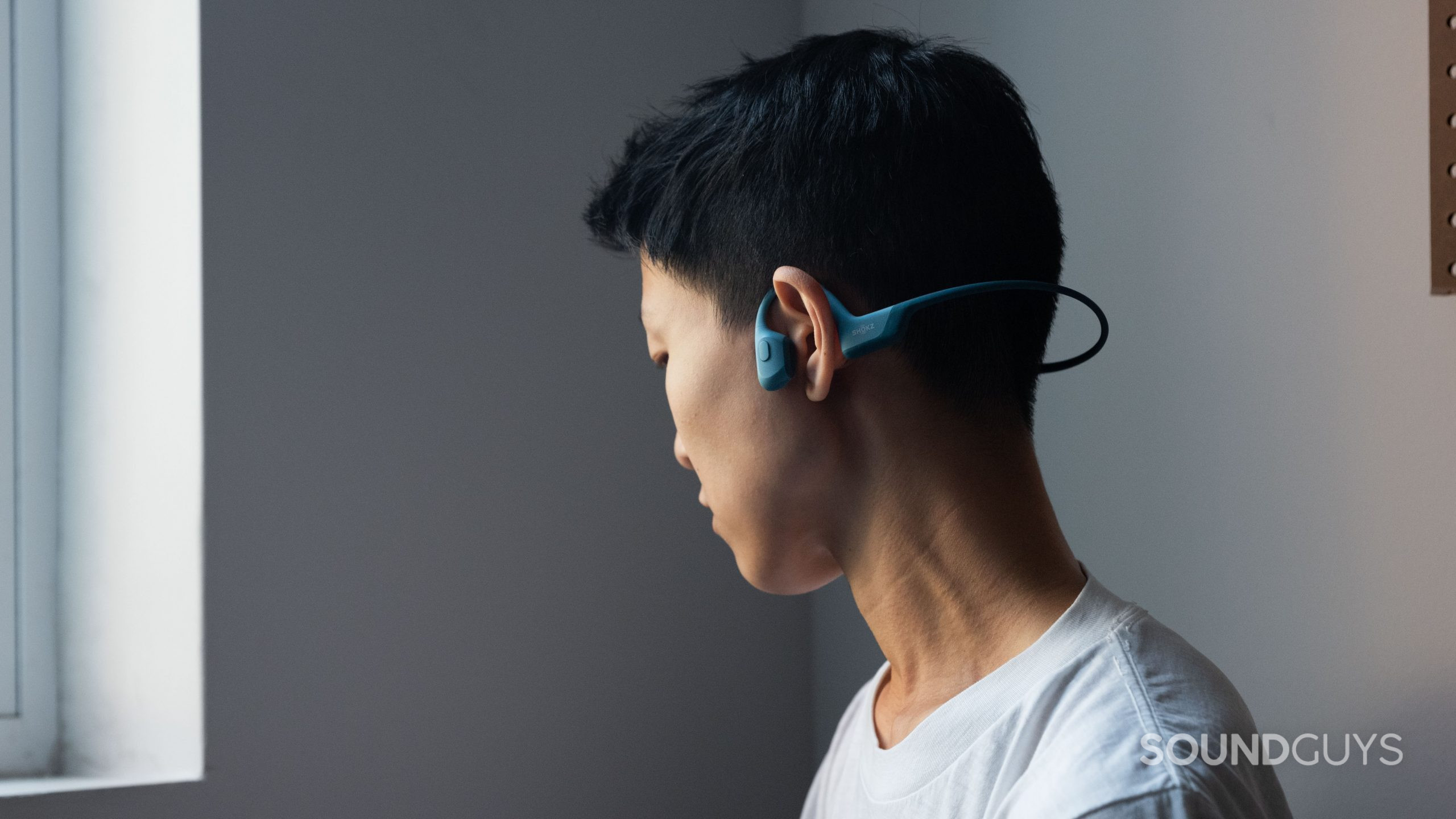
- Shokz OpenRun Pro: $179.95 / $229.95 CA / $250 AU / €189.95 / £130
Seemingly indistinguishable from all of Shokz’s other bone conduction headphones, the OpenRun Pro retains the unoccluded ear design that Shokz fans love. With the latest ninth-generation bone conduction technology, the OpenRun Pro is as premium as bone conduction headphones get. Like other Shokz headsets, the OpenRun Pro has a durable titanium headband that can flex in any direction. Unlike other Shokz headsets, the OpenRun Pro includes a premium hardshell zippered carrying case.
The Shokz OpenRun Pro is the only bone conduction headphones in the company’s portfolio with mobile app support. The app is simple, but it allows for firmware updates to keep the headset competitive down the line. You can also switch between EQ modes (Standard and Vocal) and enable multipoint connectivity, but you can also do that directly from the controls.
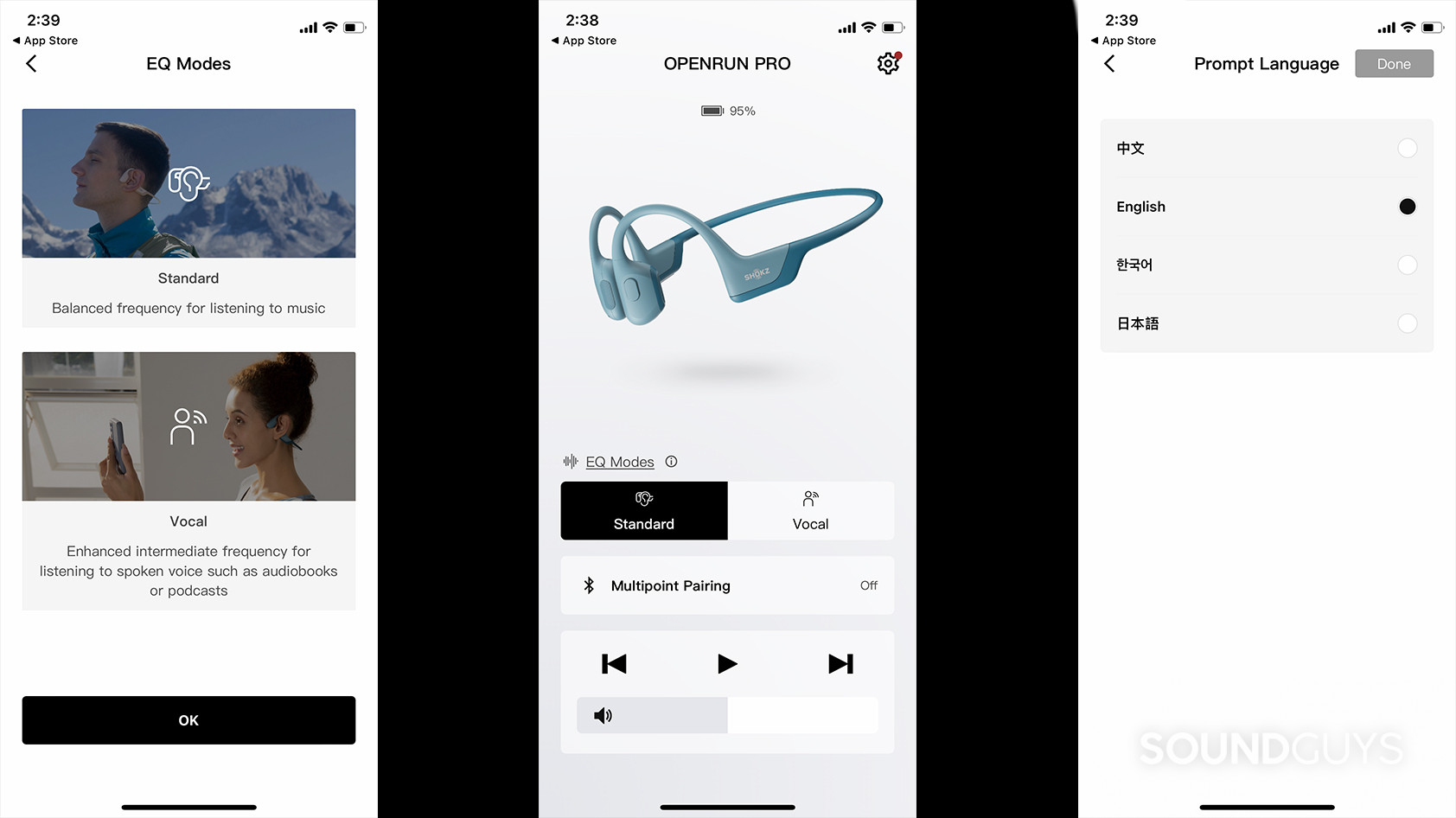
The OpenRun isn’t exclusive to runners. Anyone can wear these safety-first headphones, and many urban dwellers do. Bone conduction headphones like the OpenRun Pro are also good for those with certain hearing impairments. Rather than sending sound waves down your ear canal, the headphones send vibrations through your skull, bypassing the outer and middle ear. This means you can wear the OpenRun Pro with certain types of hearing aids.
The Shokz OpenRun Pro comes in four colors: pink, black, blue, and beige.
What’s good about the Shokz OpenRun Pro?
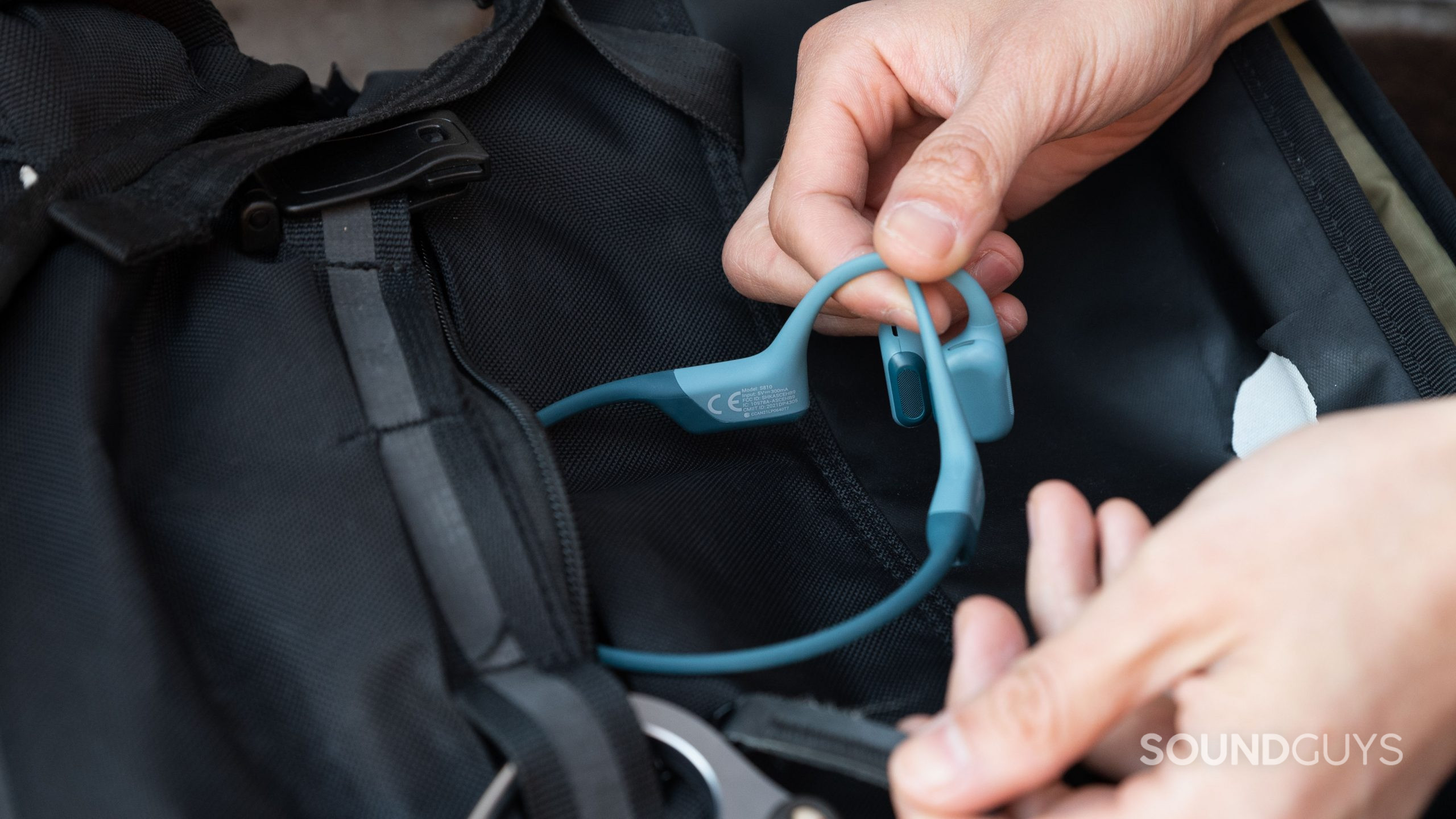
Most wireless workout earbuds block your ear somewhat, but the OpenRun Pro lets you hear everything. While I enjoy running with the AirPods Pro (2nd generation)’s Adaptive Transparency enabled, I prefer the real-world sound from Shokz’ open fit. The OpenRun Pro even gets loud enough that auditory masking is rarely an issue while running (quiet volume output plagues older models like the AfterShokz Air). This design keeps me keyed into traffic jams or unexpected sounds that could signal danger. Bone conduction headphones protect you from more than just your surroundings; they also keep your ears healthy by lowering your risk of an ear infection. With traditional earbuds, your ears trap heat and moisture, which is conducive to bacteria growth—that’s not a concern here.
Aside from putting your health and safety first, Shokz does its best to make this sturdy headset comfortable. The headband offers the right amount of tension to ensure stability without inducing headaches. The rubberized coating helps the headset grip your cheekbones and makes it easy for sweaty hands to grip it. Like other workout earbuds and headphones, the OpenRun Pro is durable and merits an IP55 dust and water-resistance rating. They should be fine if you don’t submerge this pair of workout headphones.
The Shokz OpenRun Pro sounds great, and the bass output is slightly louder on this headset than on the older OpenRun. While more bass is always welcome in bone conduction headsets, these lag behind even the AirPods (3rd generation). Compare the OpenRun Pro to even a cheap pair of earbuds like the JLab GO Air POP, and the earbuds will win every time because they seal your ear canals. The most notable sound quality improvement over the OpenRun is the OpenRun Pro’s ability to keep audio quality consistent when chewing. Audio quality significantly declines if the standard OpenRun is even a little displaced from my cheekbones. When placed properly, both headsets sound quite similar. The Vocal EQ preset is a great feature for those who listen to spoken word content on their runs, since low-pitched external sounds can often mask vocal frequencies.
What’s not so good about the Shokz OpenRun Pro?
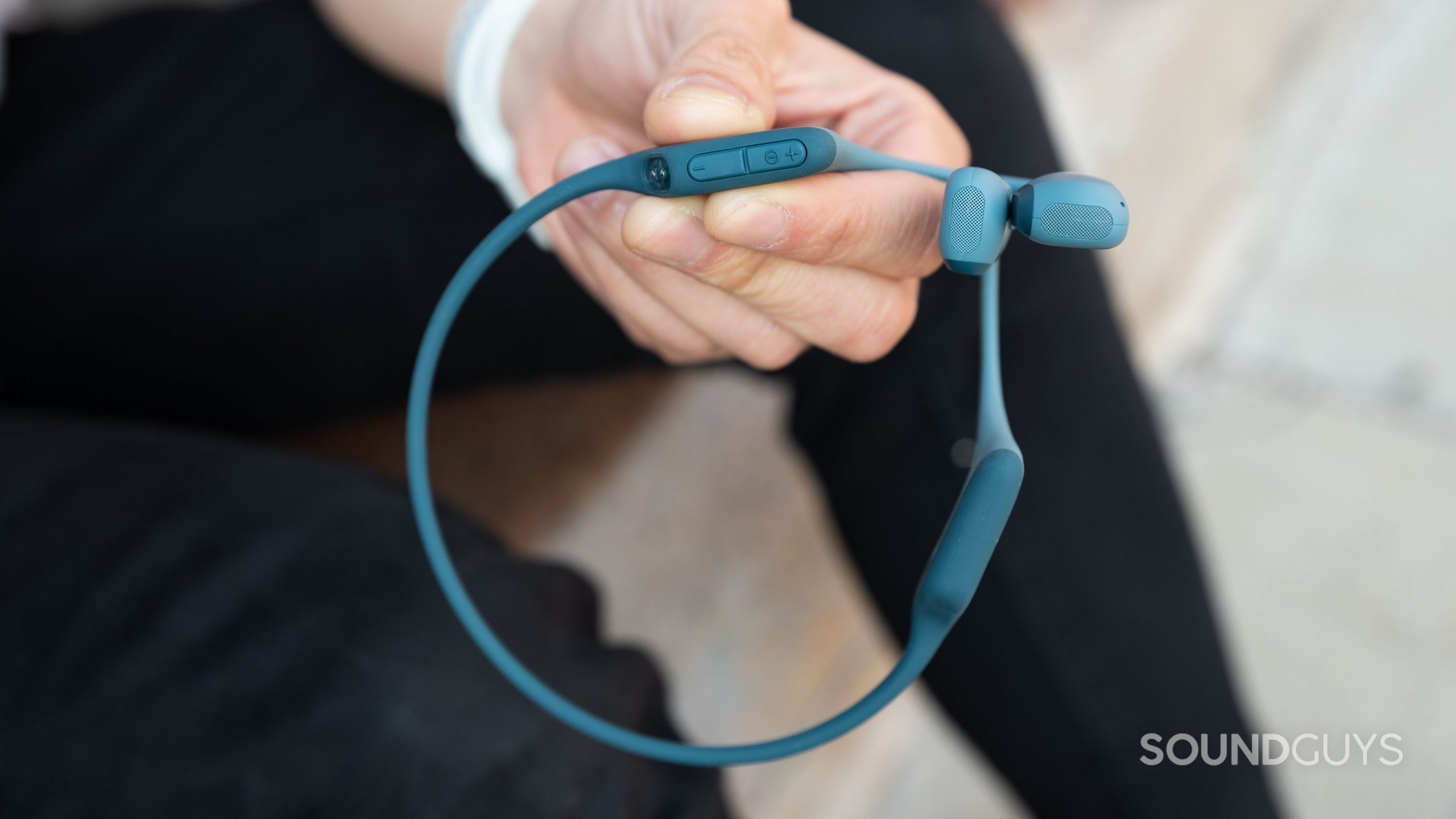
Shokz’s proprietary 2-pin charging connector is even more annoying to see than a micro-USB port. The connector helps keep the headset compact and lightweight, also leaving more room for battery cells, but we know Shokz can install a USB-C port on its headsets—just look at the more affordable OpenMove ($79 at Amazon).
Equally frustrating are the seemingly indistinguishable volume up and down controls. When running, it’s a gamble as to which one I press. It’s particularly difficult to differentiate the buttons with gloves on. In fact, these headphones aren’t friendly to cold-weather garb: beanies, headbands, and ear warmers all feel uncomfortable with the OpenRun Pro. These articles of clothing all push the headband against my head in an uncomfortable way, which isn’t the case with earbuds or over-ear headphones.
Anyone who lifts weights may also be dissatisfied with how the headset shifts when lying down for a bench press, and cyclists may feel unnerved by the fit beneath a helmet. Rock climbers, however, will appreciate the open-type fit, rugged materials, and dust resistance. Whether this is a good workout headset for you depends on what kind of exercises you engage in most.
The last gripe is more curious: the OpenRun Pro costs $179, and the OpenRun costs $129, but the pricier “Pro” has a lesser IP rating. With the OpenRun Pro, you get an IP55-rated headset, while the OpenRun is an IP67-rated headphone. These ratings are the difference between being able to drop your headphones in water and it being fine, or you being out $179. It just seems silly to lessen the durability of the seemingly more advanced product.
Shokz OpenRun Pro specs
Before you buy the OpenRun Pro, check out its specifications to make sure it fits the bill for your needs.
| SHOKZ OPENRUN PRO | |
|---|---|
Size | 130 x 97 x 47 mm |
Weight | 27g |
Noise canceling | No |
IP certification | IP55 |
Connection | Bluetooth 5.1; SBC |
Controls | Buttons |
Battery life | 10 hours |
Fast charging | Yes: 5 minutes charge = 90 minutes playtime |
Connector | Proprietary 2-pin |
Price | $179 USD |
Shokz OpenRun Pro review: Should you buy it?

Resting at the top of Shokz’s product line, these really are some excellent bone conduction headphones for working out. Although I love these headphones, the app’s limited functionality isn’t a selling point. Instead, it could make more sense to purchase the Shokz OpenRun ($129 at Amazon) and save about $50. Sure, the “Pro” headphones deliver modestly better bass and battery life than the Open Run, but the Open Run is more durable. You even get multipoint connectivity with either headset, making them equally good for work.

To really save a buck while still getting a reliable pair of bone conduction headphones, check out our Shokz OpenMove review. You get the same IP55 rating, design, and Bluetooth specs, but this package includes USB-C charging and costs $79 at Amazon. The headphones are 2g heavier than the OpenRun Pro, though.
Finally, if you want a more traditional fit, look at the Sony LinkBuds WF-L900 ($178 at Amazon). These donut-shaped earbuds also keep you alert and have a more compact form factor than bone conduction alternatives. You get an IPX4 rating for the buds and a mobile app that works on iOS and Android.
Alternatively, you can check out the Shokz OpenFit ($179 at Amazon), which isn’t bone conduction. Instead, they’re individual buds that wrap over the top of your ears but don’t actually seal the canal, leaving your ears unoccluded. They’ve got an IP54 rating, and they’re notably smaller than the other Shokz.
No matter which pair of earbuds or headphones you choose, you’ll invest in a great running headset that promotes safety.
Shokz OpenRun Pro vs OpenRun Pro 2: Worth the upgrade?
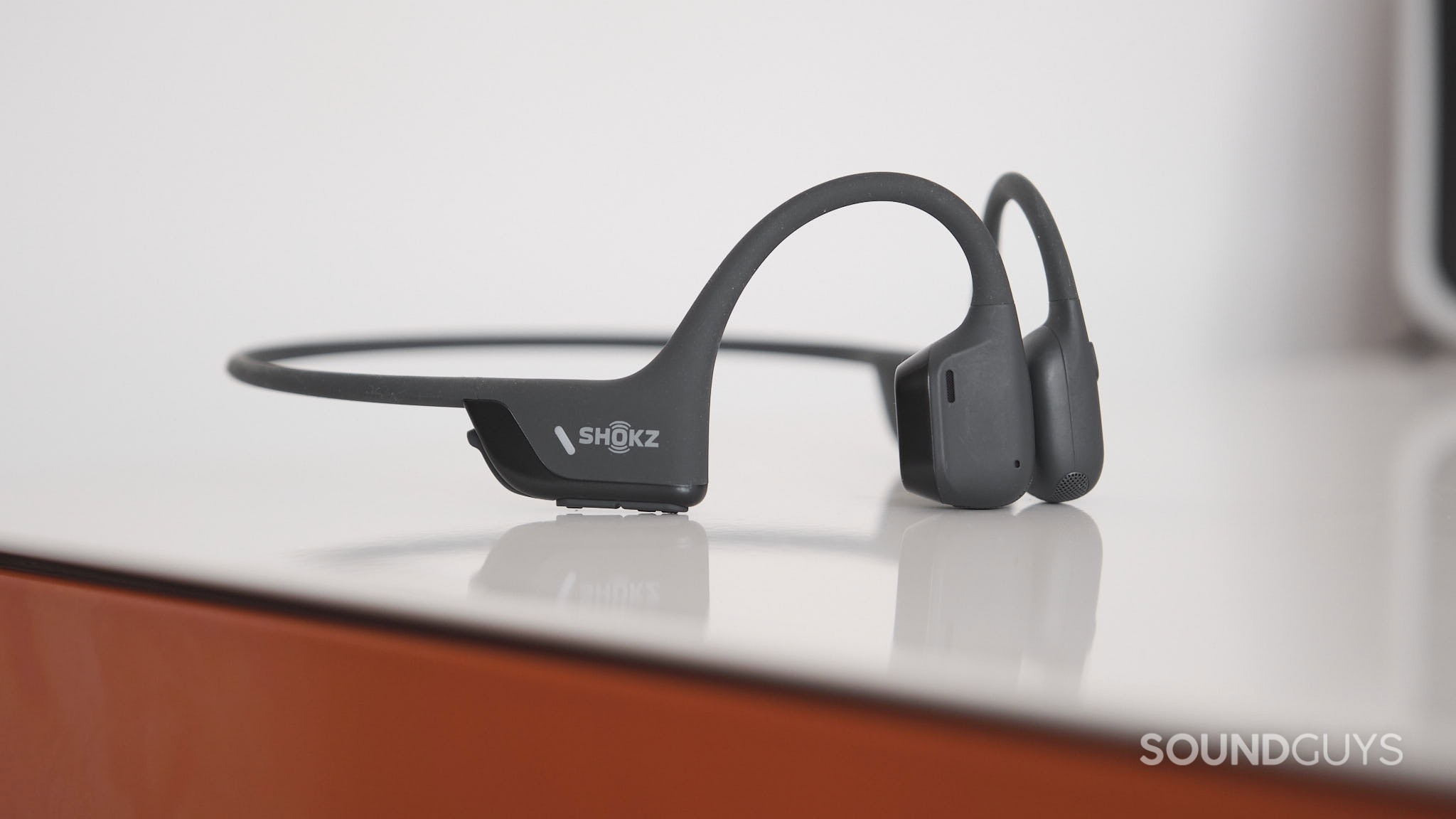
In 2024, Shokz released the OpenRun Pro 2 ($179.95 at Amazon). In our testing, we found the OpenRun Pro 2 is a worthy improvement to the OpenRun Pro. Compared to the first-gen model, the OpenRun Pro 2 offers improved bass reproduction and reduced cheek vibrations. The OpenRun Pro 2 also now has USB-C charging, unlike the old 2-pin connector. Additionally, you get improved battery life. You should go for the OpenRun Pro 2 if you can.

Frequently asked questions about the Shokz OpenRun Pro
The OpenRun Pro battery life is officially 10 hours, which is longer than the OpenRun’s 8-hour battery life.
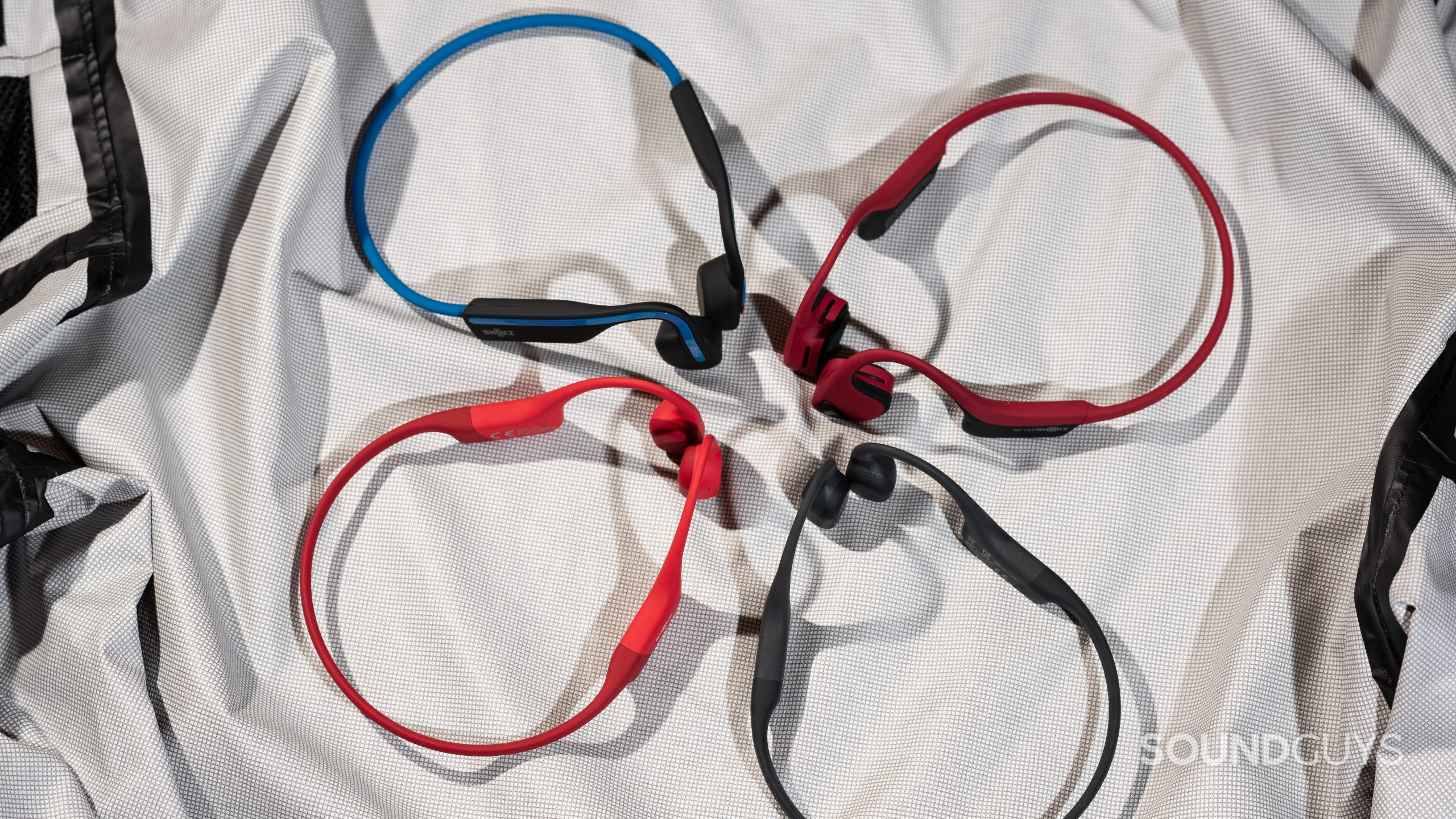
The Open Run Pro uses 9th-generation bone conduction technology with Shokz TurboPitch, while the OpenRun uses 8th-generation bone conduction tech with PremiumPitch 2.0+. Basically, the OpenRun Pro reproduces a little more bass and does a slightly better job of keeping audio quality consistent when the headset shifts around.
The OpenRun Pro have a 10-hour battery life, and the OpenRun has an 8-hour battery life. Both headphones support fast charging. You must use the company’s proprietary charging connector no matter which headset you get. Interestingly, the OpenRun Pro has a more durable IP67 rating than the Pro’s IP55 rating.
Yes, on December 28, 2021, AfterShokz renamed itself to Shokz. Shokz changed its name on its 10th anniversary to lead into the next decade with a simplified and easier-to-share message than the former, “AfterShokz.” With this name change came a revamped logo to better illustrate the bone conduction technology.
Thank you for being part of our community. Read our Comment Policy before posting.